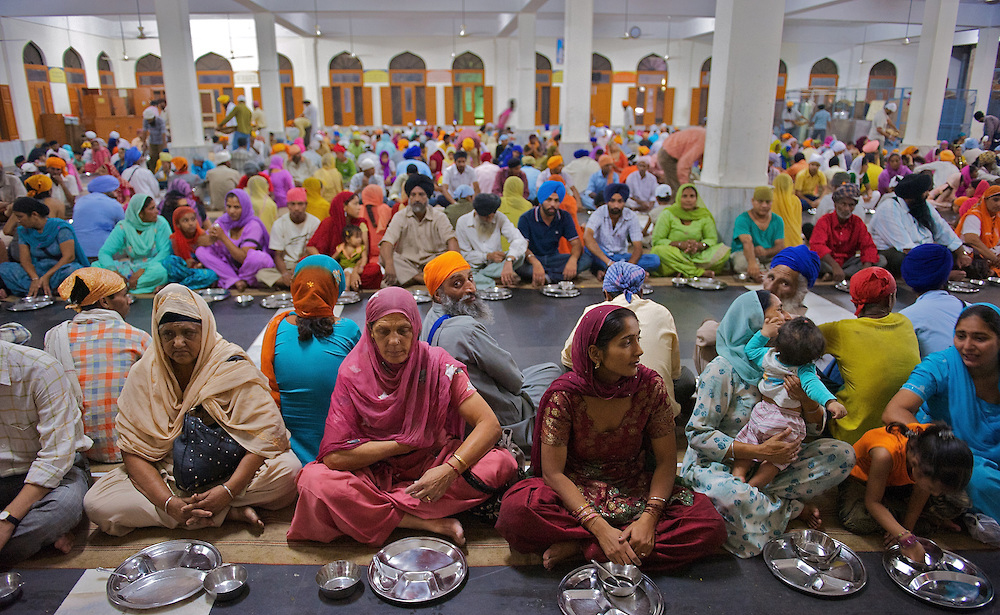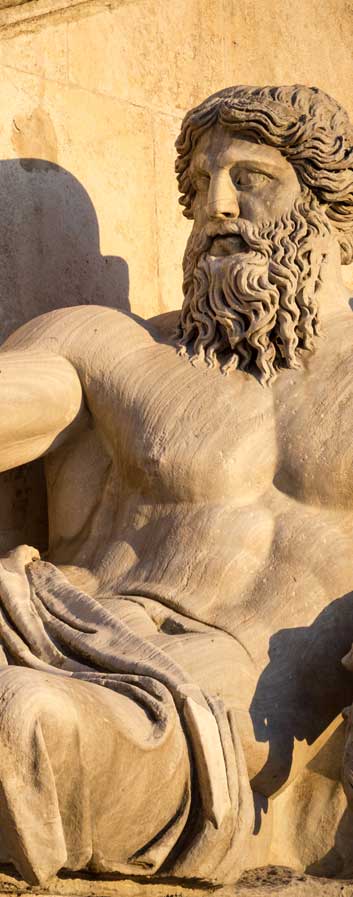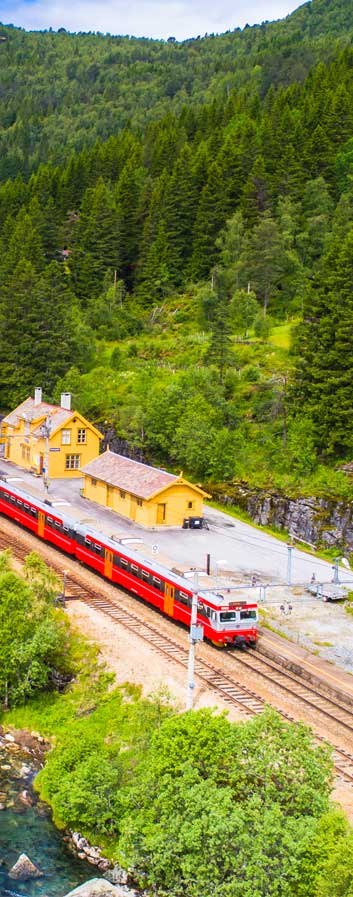Guru-Ka-Langar
Guru Ka Langar The tradition of serving langar Initiated by Guru Nanak Dev Ji and then established by the 3rd Guru Sri Guru Amar Dass Ji at Goindwal.
Even the Mughal King Akbar came and sat among the ordinary people to share langar.
The institution of Guru ka Langar has served the community in many ways. It has ensured the participation of women and children in a task of service for mankind. Women play an important role in the preparation of meals, and the children help in serving food to the pangat. Langar also teaches the etiquette of sitting and eating in a community situation, which has played a great part in upholding the virtue of sameness of all human beings; providing a welcome, secure and protected sanctuary.
Everyone is welcome to share the Langar; no one is turned away. Each week a family or several families volunteer to provide and prepare the Langar. This is very generous, as there may be several hundred people to feed, and caterers are not allowed. All the preparation, the cooking and the washing-up is done by volunteers and or by voluntary helpers (Sewadars).
In the Golden Temple Community Kitchen at an average 75,000 devotees or tourists take langar in the Community Kitchen daily; but the number becomes almost double on special occasions. On average 100 Quintal Wheat Flour, 25 Quintal Cereals, 10 Quintal Rice, 5000 Ltr Milk, 10 Quintal Sugar, 5 Quintal Pure Ghee is used a day. Nearly 100 LPG Gas Cylinders are used to prepare the meals. 100’s of employees and devotees render their services to the kitchen.
Bhai Desa Singh in his Rehitnama says, "A Sikh who is 'well to do' must look to the needs of his poor neighbours. Whenever he meets a traveller or a pilgrim from a foreign country, he must serve him devotedly.
Maharaja Ranjit Singh made grants of jagirs to gurdwaras for the maintenance of langars. Similar endowments were created by other Sikh rulers as well. Today, practically every gurdwara has a langar supported by the community in general. In smaller gurdwaras cooked food received from different households may comprise the langar. In any case, no pilgrim or visitor will miss food at meal time in a gurdwara. Sharing a common meal sitting in a pangat is for a Sikh is an act of piety. So is his participation in cooking or serving food in the langar and in cleaning the used dishes. The Sikh ideal of charity is essentially social in conception. A Sikh is under a religious obligation to contribute one-tenth of his earnings (daswand) for the welfare of the community. He must also contribute the service of his hands whenever he can, service rendered in a langar being the most meritorious.



































